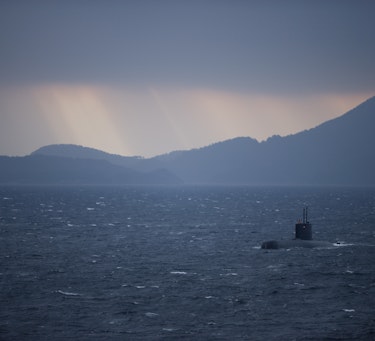Leangkollen Security Conference 2017 | Security in Northern Europe after Crimea, Brexit and the U.S. election
- Date
- -
- Location
- The Norwegian Nobel Institute / The Leangkollen Conference Center

At the 2017 Leangkollen Security Conference, entitled “Security in Northern Europe after Crimea, Brexit and the U.S. election”, we adapted a regional perspective focusing on aspects of the changing security dynamics in NATO’s North.
The Title: "Security in Northern Europe after Crimea, Brexit and the U.S. election", was chosen to illustrate how new choices, policies and actions made by Russia, Great Britain and the United States have direct impact on the security dynamics in Northern Europe and particularly the Nordic region.
When Russia in March 2014 violated the territorial integrity of Ukraine and annexed Crimea, they broke away from the rule-based international order in place since World War Two. With Brexit and the election of Donald Trump as the 45th president of the United States, the liberal post-Cold War order seems to have come to an end as well. Brexit demonstrates that European integration is reversible. Trump is placing "America first" and dismissing NATO as "obsolete". The "West" - a community of democracy, rule of law, division of power, and market economy - has become increasingly challenged both by external and internal forces. The roots of these forces are manifold. How they might change our collective, rule based security institutions is impossible to foresee. That big changes are facing the transatlantic relationship is no exaggeration. That is why these broader topics of a "crumbling liberal order" served as a "guidline" for discussion throughout the 2017 Conference.
To the Nordic and other small and medium sized states in northern Europe the possibility of a world order were "might trumps right" is disturbing. However, in the view of all the uncertainty it helps to take a sober look at the strategic circumstances, the geopolitical outlook from different capitals involved as well as the cohesion and flexibility of central security institutions.